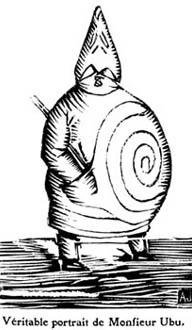User Login |
Segue Series 4/26 (Thomas Fink & Elizabeth Willis)Erik Podhora Reviewing the Segue Series Reading 4/26/08 Thomas Fink & Elizabeth Willis The reading was set to begin at 4PM. But it didn’t get underway until the last stragglers from the Barbra Guest tribute at St. Marks trickled into the room and bought a drink. Thomas Fink was first to read. His poems were filled with humorous statements and observations: “A convivial think tank,” “condoms increase food supply.” More humorous than his content was his presentation. Thomas used different voices throughout his poems, often transitioning many times in the same poem. One recurring voice was Thomas’s British accent, which seemed to exude an aura of cynical seriousness. My favorite voice was his “Yenglish,” used in his “Yenglish Strophies.” These poems were a collection of phrases and words read with a Yiddish accent. While the syntax in the poems departed from typical American form, the phrases were not all non-sense, “Did you ever have snow in April?” “Candy’s like a mommy without a brain.” The kind of light-hearted fun that the poet brought to the reading with his accents makes me happy to have heard his performance before I ever read his work. Thomas also read several poems that were infused with lines from popular songs. I could never have understood how to read his collections of song lyrics unless I had heard him read first. I got the sense that Thomas is a poet who likes to have a lot of light-hearted fun with his poetry. He read several poems that his daughter had written. Given his particular brand of goofiness, his poetry may be accessible for children. Kristin Prevallet brought her daughter to the reading. I wonder, was she was entertained? Elizabeth Willis had a very different sense of humor. Her clever use of cliché and overstatement often got a chuckle from the audience. But, it seems her poetry was not centered on light-hearted fun. She spent as much time introducing many of the poems as she did reading them. The explanations narrowed the audience’s experience with the poems, but it seemed like Elizabeth was interested in the audience taking away precisely what she intended from her poems. She even shared a personal revelation with the audience as she was half-way through her reading. “I can see the influence of the G.W. Bush presidency in my poetry. I use the word “future” in a very menacing way in almost every one of my poems.” Her poems did have a political context even without that explanation. She used the line, “so begins our legislation” as a kind of conclusion in one of her poems. As Elizabeth read she kept one hand on the music stand and the other in her front jeans pocket. The posture was very strong and assertive, especially because she avoided looking at the audience too much. When she read poems from “The Religious Vein,” the work centered on the word “witch.” Elizabeth’s “witch” seemed to be a modern woman. The witch is independent, free-thinking and powerful. But the witch is under examination. Every aspect of her body and her personality are on trial. Elizabeth makes a list of important cultural workers from the last 200 years and describes them all as witches. There is a lot of respect for witches in Elizabeth’s work. “The ability to understand another language is witchcraft.” The content in Willis’s work makes me think her material would be worthwhile to read. Fink’s poetry would better serve a discussion on form. The poet’s different styles complimented each other well as a whole performance.
categories [ Poetry Reviews ]
login or register to post comments | printer friendly version
|
